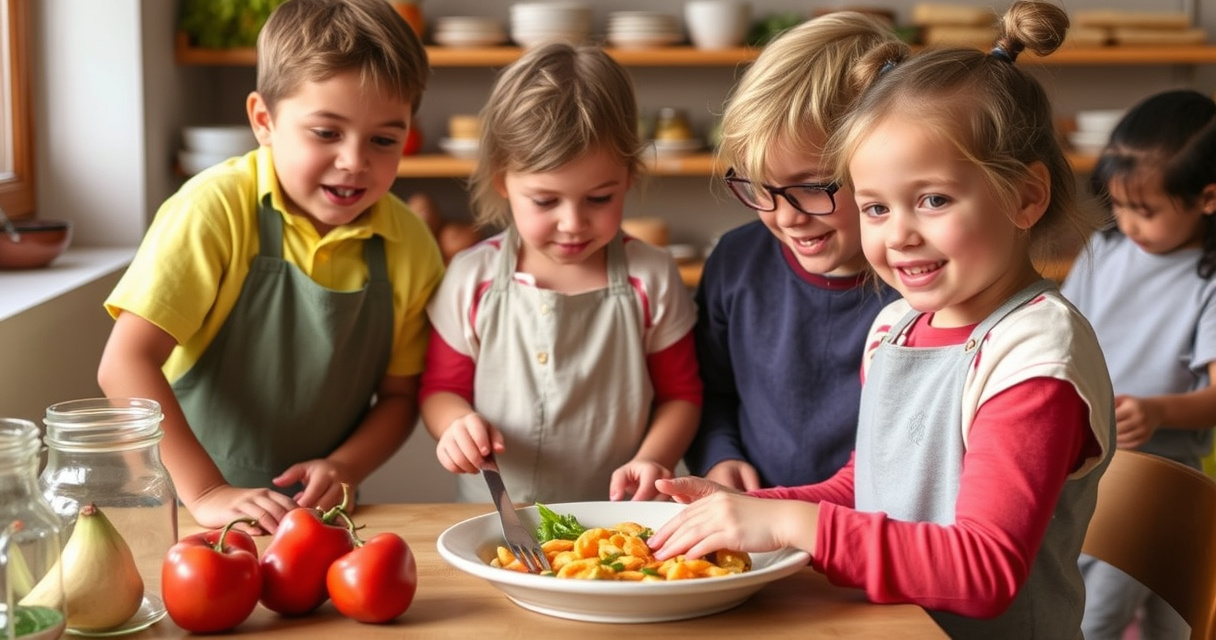News
Discover the secret to healthy eating with “A scuola con gusto” 2025 relaunch!

Exploring the educational impact of the ‘A scuola con gusto’ initiative: How the program aims to teach primary school children about healthy eating habits through engaging activities and community involvement.
The ‘A scuola con gusto’ initiative is set to resume on March 26, 2025, for its second edition, organized by the Centro Agro Alimentare Riminese (CAAR). Aimed at teaching primary school children about proper nutrition, the program has expanded to involve over 160 students following its successful debut. The initiative boasts a comprehensive approach, incorporating games, workshops, and educational activities to instill healthy eating habits. The event will feature notable attendees, including Rimini’s Deputy Mayor Chiara Bellini, Agriculture Assessor Francesca Mattei, and School Meals Representative Rossana Salimbeni, highlighting the community’s commitment to promoting nutritional awareness among the young.
Interactive learning experiences designed to educate on seasonal and local produce
The ‘A scuola con gusto’ initiative places a significant emphasis on educational workshops focusing on key topics such as seasonality, territoriality, nutritional values, and correct portion sizes. These workshops aim to engage students in practical learning experiences, offering simple fruit and vegetable-based recipes. By encouraging the adoption of healthy eating practices, the initiative seeks to foster a culture of healthy living that extends beyond the classroom to the families of participating students. The initiative supports the development of a foundational understanding of nutrition that can positively impact community health.
Collaboration with educational and culinary institutions enhances the program
Students will benefit from hands-on experiences guided by Sofia Canini, a biologist and nutritionist, alongside teachers and students from IAL Riccione – School of Hospitality and Catering, directed by Paola Frontini. This collaboration provides a unique opportunity for primary school students to learn from experts and peers in the field of nutrition and culinary arts. The involvement of educational institutions in the initiative underscores the importance of a multidisciplinary approach to nutritional education, leveraging expertise from various sectors to enhance the learning experience.
Community support and involvement play a crucial role
The ‘A scuola con gusto’ project is supported by a range of partners, including Romagna Banca BCC, Cooperativa Co.F.Mo., Orsero, Pink Lady, Marlene, and Dole. These collaborations demonstrate the community’s dedication to fostering healthy eating habits among young people. The participation of the Community of San Patrignano in the inaugural event further highlights the initiative’s commitment to addressing increasing concerns about eating disorders. By involving community stakeholders, the program seeks to create a supportive environment that encourages sustainable nutritional practices.
Impact on participating schools and students
Primary schools participating in this edition include “Madre Teresa di Calcutta” (IC Alighieri), “Fellini”, and “Decio Raggi”. The initiative not only aims to educate students but also aspires to raise awareness about the importance of a balanced and healthy diet across the broader community. By targeting young students, ‘A scuola con gusto’ hopes to instill lasting dietary habits that will benefit their health in the long term, while also motivating families to adopt healthier lifestyles. The program’s expansion and continued success underscore its potential to make a meaningful impact on community health and well-being.
In summary, the ‘A scuola con gusto’ initiative represents a comprehensive effort to educate young students about healthy eating through interactive and community-supported activities. By involving a wide range of stakeholders and focusing on practical learning experiences, the program aims to foster a culture of nutritional awareness that extends beyond the classroom, ultimately contributing to improved public health outcomes.
Riproduzione riservata © - WT











